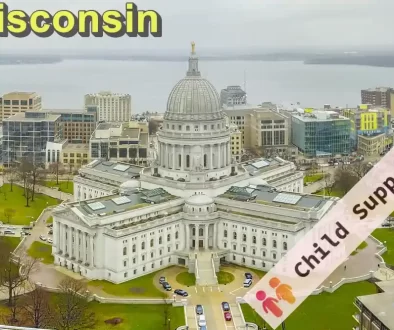Child Support in North Carolina
The parents of a child have a duty to support the child and provide the resources necessary to give the child a decent life. Divorce or separation does not absolve any of the parents of this responsibility, however, some parents shy away from their childcare duties, and this reduces the standard of living for the child. Child support laws have been established to provide a remedy by instituting legal obligations for each parent, with regards to the care of their child.
Child Support Process After Divorce
The North Carolina Department of Health and Human Services (NCDHHS) is the administering body in charge of Child Support Services (CSS) in the state. Custodial parents who receive public financial assistance are automatically enrolled for child support services, while those who are not under a public assistance program can apply independently. Custodial parents who apply independently are required to pay a non-refundable application fee of $25. The application form can be found at https://www.ncdhhs.gov/media/2317/download. In this form, the custodial parent would need to fill in personal details, as well as details about the noncustodial parent. This includes full name, date of birth, Social Security Number, mailing address, residential address, phone number, employer’s details, etc. The information provided about the noncustodial parent may be particularly important. This is because accurate information speeds up the process of locating the noncustodial parent and the child support case cannot proceed until the parent is located. While filling the form, the custodial parent will also need to include details about the child that support is being requested for.
When the noncustodial parent has been located, there will be a need to establish the paternity of the child. If both parents were married when the child was born, the man is presumed to be the child’s father. However, if the parents were not married, paternity cannot be established until the acknowledges that he is the child’s father, or a test is done to prove him as the father. For the man to voluntarily acknowledge the paternity of the child, he must sign an Affidavit of Parentage. This is usually done in the hospital when the child is born but can be done at a later time as well. If there are doubts concerning who the actual father of the child is, genetic testing may be ordered. Blood or tissue samples are used to carry out the test and the results obtained are reliable enough to be presented as evidence in legal proceedings.
Once the paternity of the child has been established, CSS goes about establishing the support obligations for the case. For further information, visit https://www.ncdhhs.gov/divisions/social-services/child-support-services.
How Do You Receive Child Support?
Child support payments are received and disbursed by the North Carolina Child Support Centralized Collection (NCCSCC). Custodial parents have two options for receiving their child support payments. By default, child support payments are received via the smiONE NCKIDSCARD. This is a Visa debit card provided by The Bancorp Bank, onto which the child support funds are loaded. This card can be used at ATMs, banks, purchase outlets, etc. in the same way as a regular Visa debit card. Parents can also deposit money to their smiONE card using the smiONE Mobile Deposit. For more information about the smiONE debit card, visit https://ncchildsupport.com/ecoa/reports/DebitCardFAQ.pdf.
Parents receiving child support can also opt to have the funds paid directly to their checking or savings account. To do this, the parent will need to set up direct deposit by filling a Direct Deposit Authorization Form which can be accessed at https://policies.ncdhhs.gov/divisional/social-services/forms/dss-4718-cse-direct-deposit-authorization/@@display-file/form_file/DSS-4718-ia.pdf.
Maximum Amount Receivable as Child Support
Child support calculations in North Carolina are based on predefined guidelines. The guidelines consider the needs of the child and the ability of the parent to make payments. The cost of medical insurance, the income of each parent, daycare expenses, etc. are also factored into the child support calculation. Separate guidelines exist for parents who have varying custody agreements as well. The child support guidelines can be accessed at https://ncchildsupport.com/ecoa/cseGuideLines.htm.
Enforcement of Child Support
After a child support order has been established, it is possible for the noncustodial parent to default on the child support obligation. Several measures can be taken to enforce compliance and make sure that child support is duly paid. These measures include:
- Income withholding: This is an instruction to the employer of the parent to deduct a specified sum from the parent’s wages so that it can be used for child support payment.
- Tax refund intercept
- Credit reporting: A report may be submitted to a relevant credit agency, and this will affect the credit rating of the noncustodial parent.
- Denial or revocation of passport: This is applicable to parents who owe more than $2500 in child support.
- Suspension or professional, recreational, and driver’s licenses: This may be ordered by the court if the parent has child support obligations that are 90 days overdue.
- Court action may also be brought against the parent and could result in jail time.




